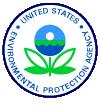The Role of Public Health and Governmental Laboratories in National Environmental Monitoring
Collaborative Efforts to Improve Environmental Monitoring
Oral Presentation
Prepared by
Contact Information: HENRY.LEIBOVITZ@HEALTH.RI.GOV; 401-222-5578
ABSTRACT
State and local public health and government environmental laboratories provide chemical, molecular, microbiological and radiological analytical support to partner programs in support of public health, laws and regulations promulgated to protect consumers of water, air, food, shellfish, dairy and recreational resources. As partners with public health programs laboratory data are used to investigate community concerns, assess human exposures, ensure compliance with existing regulations, and identify the need for an intervention/policy. The Association of Public Health Laboratories facilitates the interaction of state and local environmental laboratories with each other and with federal agencies seeking input in the response to new advisories and threats to the public health and the environment. While relied upon for routine monitoring and surveillance these laboratories are increasingly called upon to analyze emerging contaminants in environmental samples and in human specimen samples through biomonitoring. Whether autonomously or in conjunction with federal or commercial partners state and local laboratories are taking on new environmental contaminants such as those caused by fracking operations, coal burning operations, historical flame retardant production and disposal, harmful algal blooms, and improper pharmaceutical and personal care product and by-product disposal. As the future technology continues to bring increased sensitivity into environmental analysis and biomonitoring these laboratories will be relied upon to ensure the public and environment are protected. For example such sensitivity will be required to demonstrate that the quality of treated reused water is suitable for drinking. This presentation will highlight how state and local public health and environmental laboratories contribute to the national environmental monitoring effort. In addition it will describe how some state public health laboratories include environmental laboratory accreditation programs e.g. NELAP or state accreditation bodies or serve as reference laboratories for monitoring samples tested by commercial labs for public health programs.
Collaborative Efforts to Improve Environmental Monitoring
Oral Presentation
Prepared by
Contact Information: HENRY.LEIBOVITZ@HEALTH.RI.GOV; 401-222-5578
ABSTRACT
State and local public health and government environmental laboratories provide chemical, molecular, microbiological and radiological analytical support to partner programs in support of public health, laws and regulations promulgated to protect consumers of water, air, food, shellfish, dairy and recreational resources. As partners with public health programs laboratory data are used to investigate community concerns, assess human exposures, ensure compliance with existing regulations, and identify the need for an intervention/policy. The Association of Public Health Laboratories facilitates the interaction of state and local environmental laboratories with each other and with federal agencies seeking input in the response to new advisories and threats to the public health and the environment. While relied upon for routine monitoring and surveillance these laboratories are increasingly called upon to analyze emerging contaminants in environmental samples and in human specimen samples through biomonitoring. Whether autonomously or in conjunction with federal or commercial partners state and local laboratories are taking on new environmental contaminants such as those caused by fracking operations, coal burning operations, historical flame retardant production and disposal, harmful algal blooms, and improper pharmaceutical and personal care product and by-product disposal. As the future technology continues to bring increased sensitivity into environmental analysis and biomonitoring these laboratories will be relied upon to ensure the public and environment are protected. For example such sensitivity will be required to demonstrate that the quality of treated reused water is suitable for drinking. This presentation will highlight how state and local public health and environmental laboratories contribute to the national environmental monitoring effort. In addition it will describe how some state public health laboratories include environmental laboratory accreditation programs e.g. NELAP or state accreditation bodies or serve as reference laboratories for monitoring samples tested by commercial labs for public health programs.


